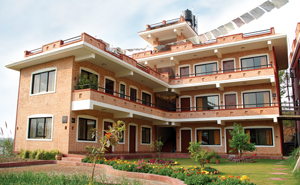Tewa UPDATES
posted on: 16 July 2018
Grantee Capacity Building on Gender and Finance Accountability in Climate Change
Participants during Panel discussion
Tewa with the aim to empower women through local community philanthropy has been providing grants and enhancing the capacity of women through capacity building training, peer learning and networking. The training not only aware women of the ongoing issues but also help them built a network among other grantee partners. We organize grantee capacity building training every year both inside and outside the valley.
On June 24 to June 25, 2018, Tewa in collaboration with Prakriti Resource Center and Both ends, conducted Capacity Building Training on Gender and Finance Accountability on Climate Change. 22 women from grassroots level including grantee partners from Tewa and members from the organization involved in Climate and Development Dialogue Forum.
The overall objective of the training was to build knowledge and capacity of grassroots level women and C&D Dialogue members in the areas of climate change (CC) and its impacts. The two days training mainly focused on the ongoing issues on Environment, Climate Finance and how environmental change affects women more than men.
The participants in the training got the insight on Climate Change, Environmental issues and how it affects human lives, especially of women. The training gave the opportunity to the participants to get knowledge and gain exposure on the ongoing issues of climate change in local level, and how one can access climate fund if one has to run a program based on Environment Rights and Justice. Throughout the training, the change in climate and the effects were discussed widely from each participant's lens. However, the common problem in most of the areas was due to increase in temperature and Rainfall.
The relation between women and the environment is reciprocal. Women are most vulnerable to climate change partly because in many countries they make up the larger share of the agricultural workforce and partly because they tend to have access to fewer income-earning opportunities.
The session on Green Climate Fund was informative to most of our participants because it was the first time the participants came to know about GCF. The session focused more on the ways to access GCF to implement the project regarding adaptation and mitigation of Climate Change. The facilitator, Raju Chhetri, Executive Director of Prakriti Resource Center suggested the participants that if they wish to implement a program for adaptation then one should seek to know what kind of program it is, demand separate meeting with the program responsible people and put across their specific interests and concerns, and even seek a role as executing agency, influencer or watchdog.
The way forward after this training was to develop an informative materials on Gender, Climate Change and Climate Finance in collaboration with environment organizations. We are also planning to organize series of programs in capacity enhancement related to environmental issues for planning process and finding resources.
One of our participants, Goma Poudel from Janajagaran Mahila Sangh said that this training was an eye opener to her. Because, she came to know about the allocation of budget for Climate change, and now her organization can develop programs solely focusing on environmental issues.
Tewa FOUNDER'S STORY
SOCIAL


